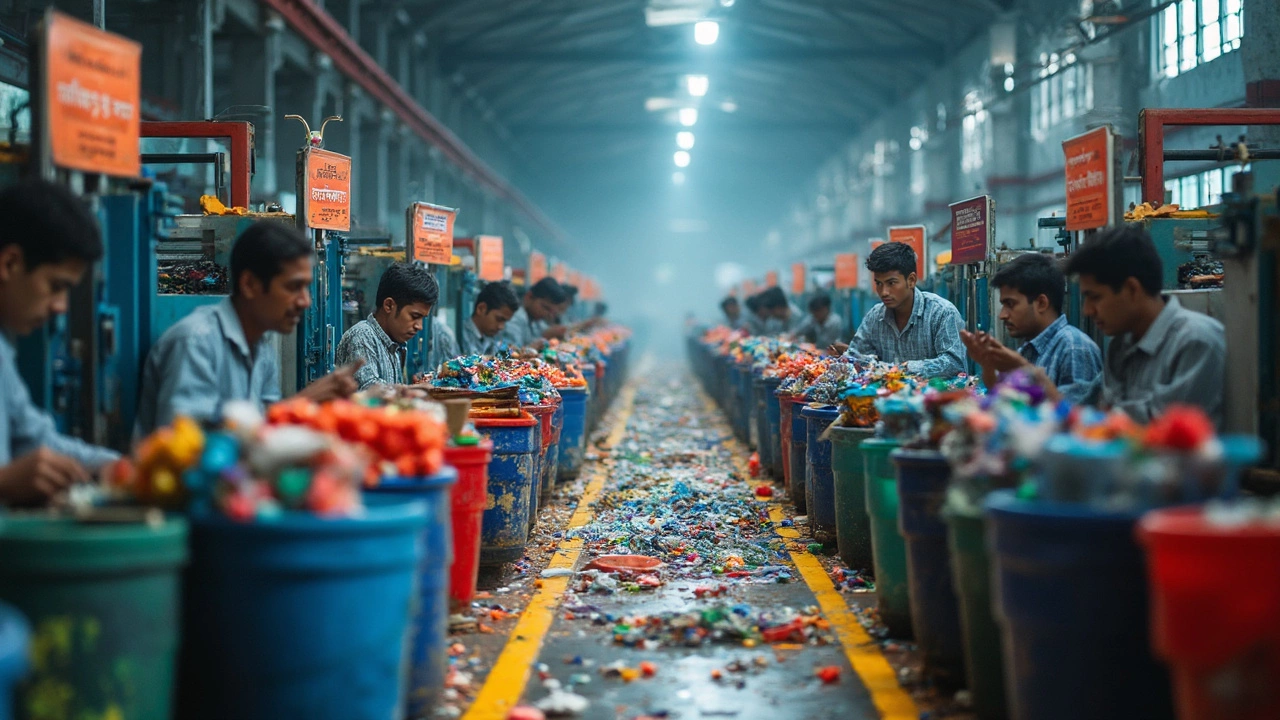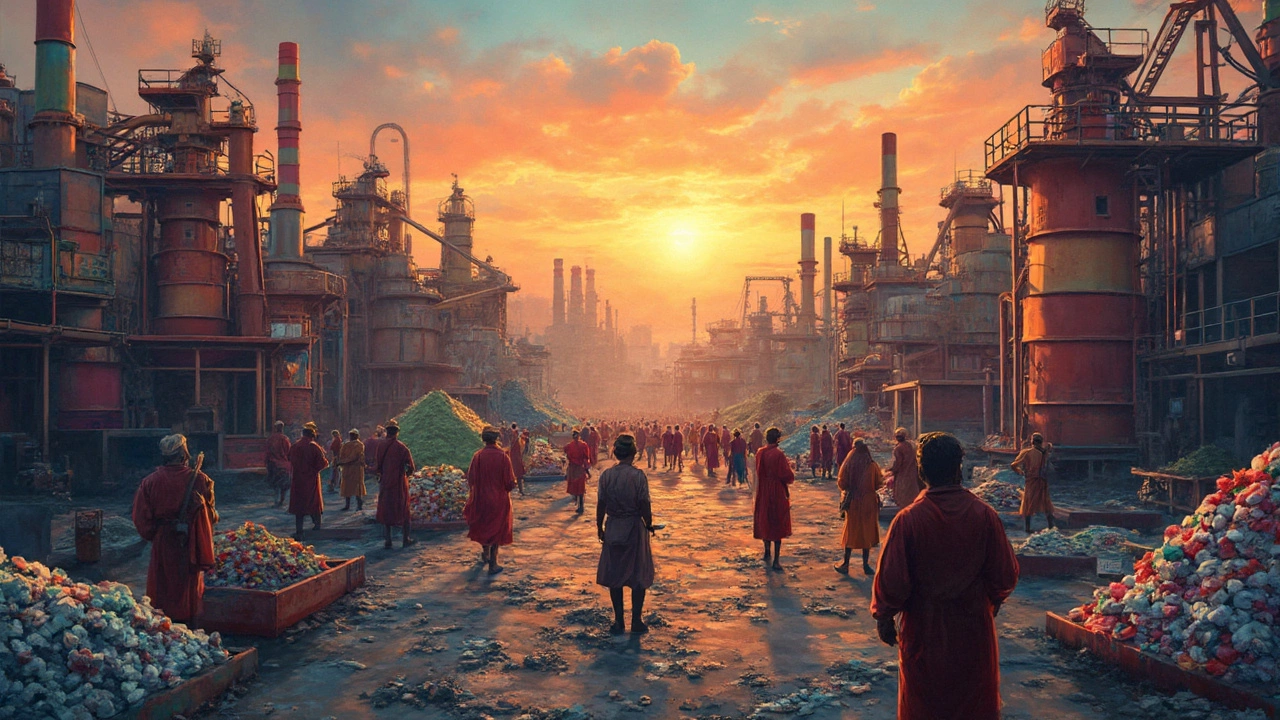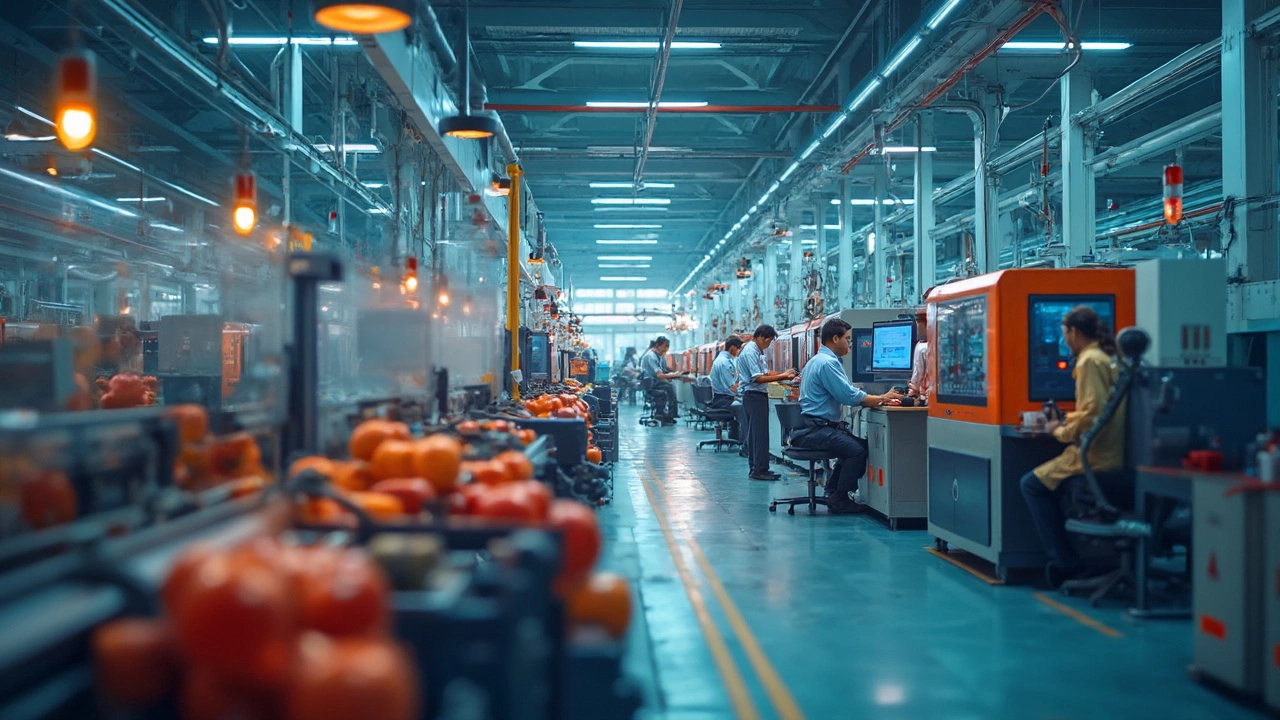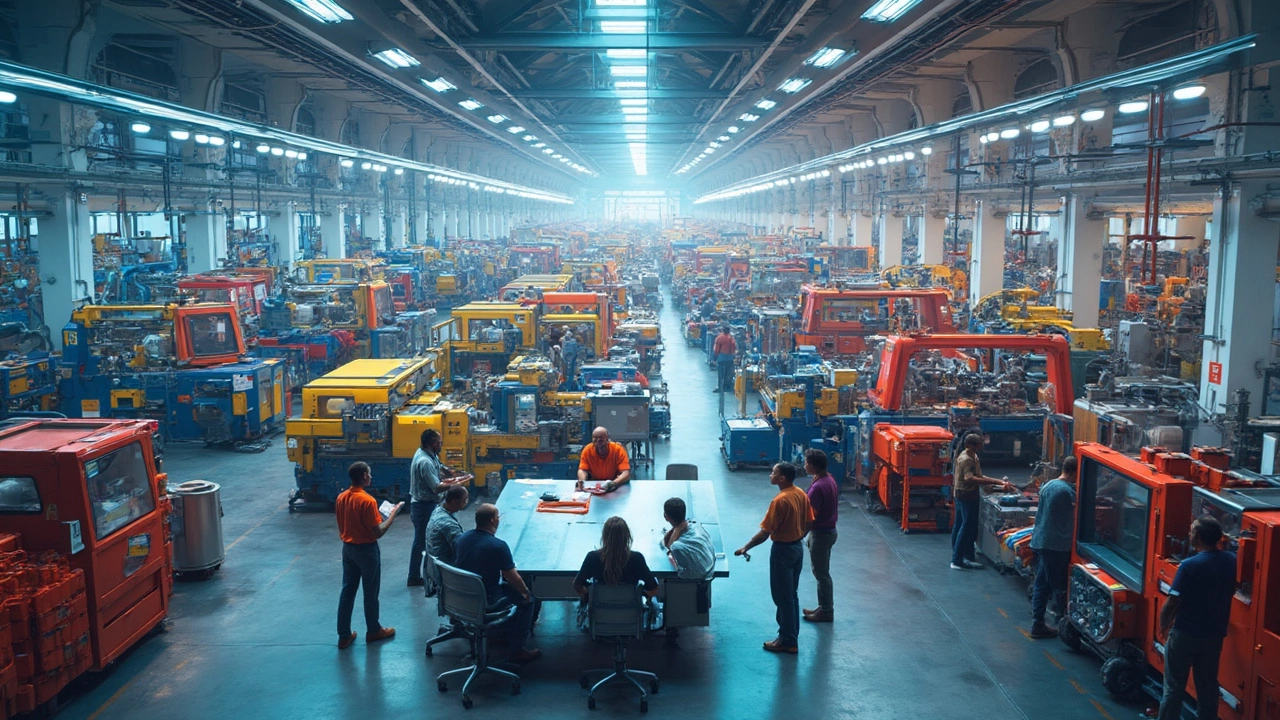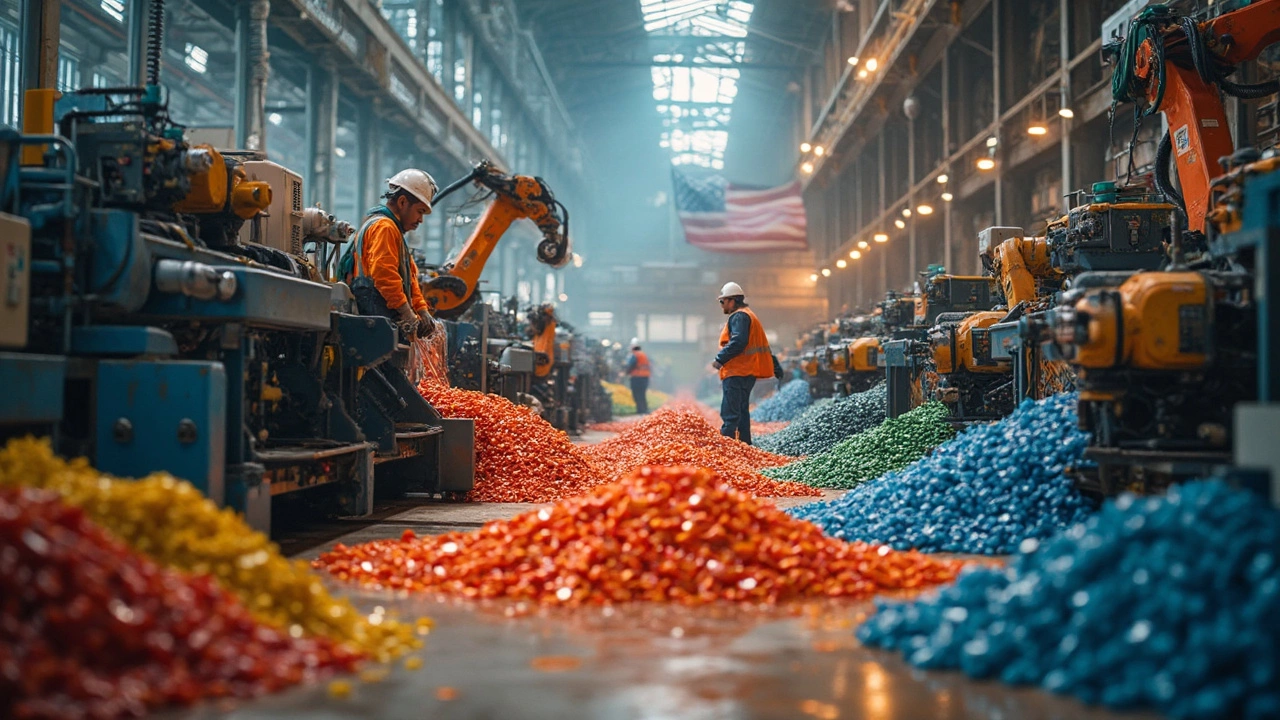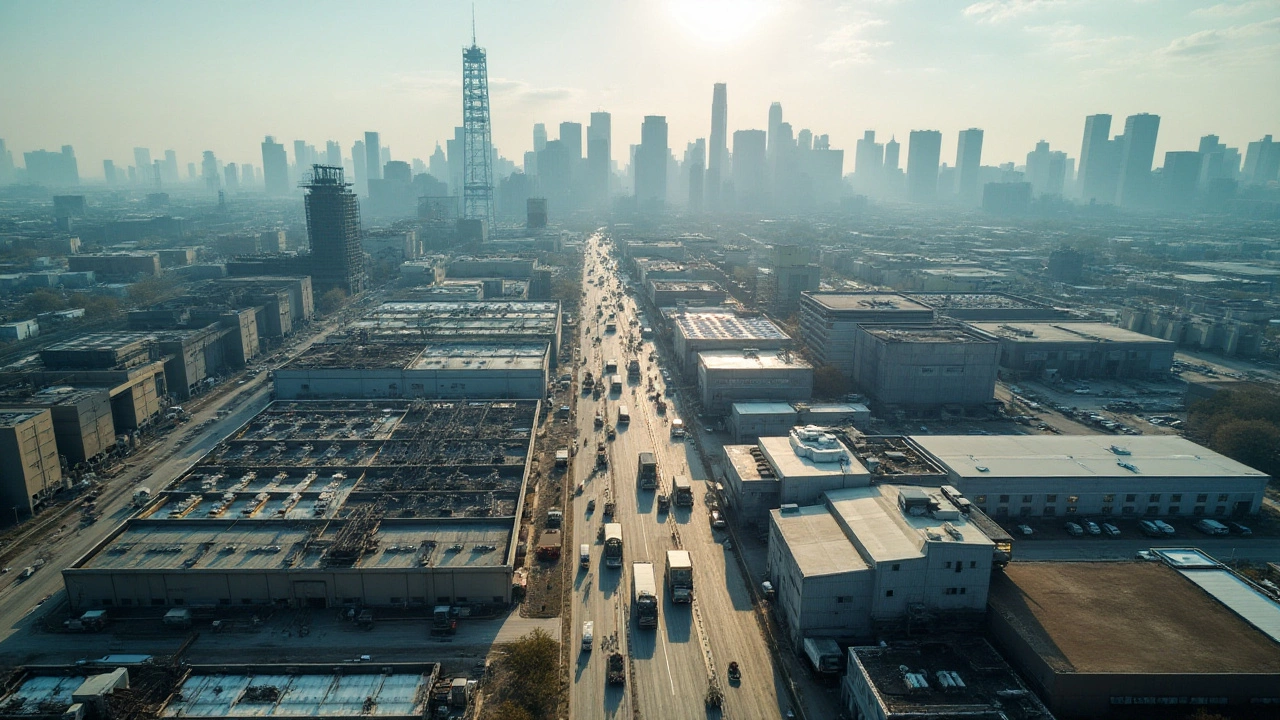Plastic Industry Insights – What’s Happening Right Now?
If you’re wondering why plastic still dominates everyday life, you’re not alone. From water bottles to car parts, plastics are everywhere, and the industry behind them is evolving fast. In India, manufacturers like Urban Polymers India are pushing the envelope with new technologies, tighter sustainability goals, and smarter supply chains. Let’s break down the key forces shaping the plastic industry today.
Top Trends Driving the Market
First up, bioplastics are stealing the spotlight. Consumers are demanding greener options, and companies are answering with plant‑based polymers that break down faster. This isn’t a niche fad—global demand for bioplastic packaging is projected to double by 2028, and Indian producers are already testing corn‑derived resin lines.
Second, digital manufacturing is cutting waste. Advanced extrusion and injection molding machines now use real‑time sensors to adjust temperature and pressure on the fly. The result? Less scrap, lower energy use, and shorter lead times. Urban Polymers recently installed a smart‑control system that reduced material waste by 12% in just six months.
Third, circular economy models are gaining traction. Many firms are setting up take‑back programs for used products, then grinding them into feedstock for new items. This closed‑loop approach not only cuts raw‑material costs but also helps meet stricter government regulations on plastic waste.
Challenges You Can’t Ignore
Price volatility remains a headache. Petrochemical feedstocks swing with global oil prices, making budgeting tricky for small manufacturers. To hedge, some companies lock in long‑term contracts or switch to alternative raw materials like recycled PET.
Regulatory pressure is another hurdle. India’s recent plastic ban on single‑use items forces producers to redesign product lines quickly. While the ban creates market gaps, it also opens doors for innovative, reusable alternatives.
Finally, talent shortages slow down adoption of new tech. Skilled operators who can calibrate high‑precision machines are in short supply. Companies are responding by partnering with technical institutes, offering apprenticeships that blend classroom theory with shop‑floor experience.
So, what does all this mean for you? If you’re a business owner looking to source plastic components, focus on partners that prioritize sustainability and have a track record of using smart manufacturing. If you’re a job seeker, hone skills in CNC programming, sensor data analysis, or material science—those are the roles that will drive the next wave of growth.
Bottom line: the plastic industry isn’t static. It’s a dynamic arena where technology, regulation, and consumer sentiment intersect. Companies that stay ahead of bioplastic trends, invest in digital tools, and embrace circular models will not only survive but thrive. Keep an eye on these developments, and you’ll find plenty of opportunities to innovate, cut costs, and make a positive environmental impact.
Plastic Manufacturers: Who Makes the Stuff We Use Every Day?
This article gives a clear look at who manufactures plastic, from the major global players to the smaller, specialized firms. You'll find tips on what makes a plastic manufacturer stand out and what industries rely on their products most. We’ll cover interesting facts, like how recycling changes the plastic market, and what new trends shape the future of plastic production. The article also lists some big names and shares practical advice for anyone interested in choosing or working with a plastic manufacturer. Dive in for a straightforward guide packed with real-world relevance.
Is Plastic Expensive to Make?
Plastic might seem like a cheap material, but its production involves various costs that can add up. This article explores the different factors that influence the price of making plastic, including raw materials, energy use, and environmental considerations. Readers will gain insights into why some plastics are cheaper than others and how recent innovations are changing the cost dynamics. Discover how companies are balancing cost, efficiency, and sustainability in today's competitive market.
Best Companies for Plastic: Who Leads the Pack?
Choosing the right plastic manufacturing company can be daunting. With the ever-growing demand for plastic in various industries, the stakes are high. This guide dives into top players in the plastic market, highlighting what sets these companies apart. Understanding their innovations, sustainability efforts, and industry contributions can help you pick the best fit for your needs.
Largest Plastic Company in the US: The Key Player Dominating the Industry
Explore the leading plastic manufacturing company in the United States and discover why it holds the top spot in the industry. Delve into the factors contributing to its success, the innovative products it offers, and how it impacts the economy. Learn about its history, business model, and what sets it apart from the competition. This article provides a comprehensive look at the top player in the US plastic market.
Which State Leads in Plastic Manufacturing?
Plastic is everywhere, from the car you drive to the phone in your hand. But have you ever wondered which state in the US produces the most of this ubiquitous material? This article explores the leading state in plastic manufacturing, unveiling fascinating facts and offering insights into the industry's role in the economy. You'll also discover some surprising elements behind the production process and the impacts it has both locally and globally.
Understanding Non-Recyclable Plastics: A Guide for Industries
Non-recyclable plastics are a pressing issue in waste management and environmental sustainability. These materials, often identified by their chemical composition, pose significant challenges for recycling processes. Understanding which plastics are not recyclable can help in making informed choices about material use and waste reduction. Companies and consumers alike can benefit from identifying and minimizing the use of non-recyclable plastics.
Exploring the Number of Plastic Manufacturing Facilities in the United States
Plastic factories play a crucial role in the American economy by producing a diverse range of products essential to various industries. The US, known for its robust manufacturing sector, has a large number of plastic production facilities spread across the nation. These factories contribute significantly to regional economies while facing challenges such as environmental regulations and the push for sustainable practices. Understanding the distribution and impact of these facilities provides insights into the broader manufacturing landscape.
